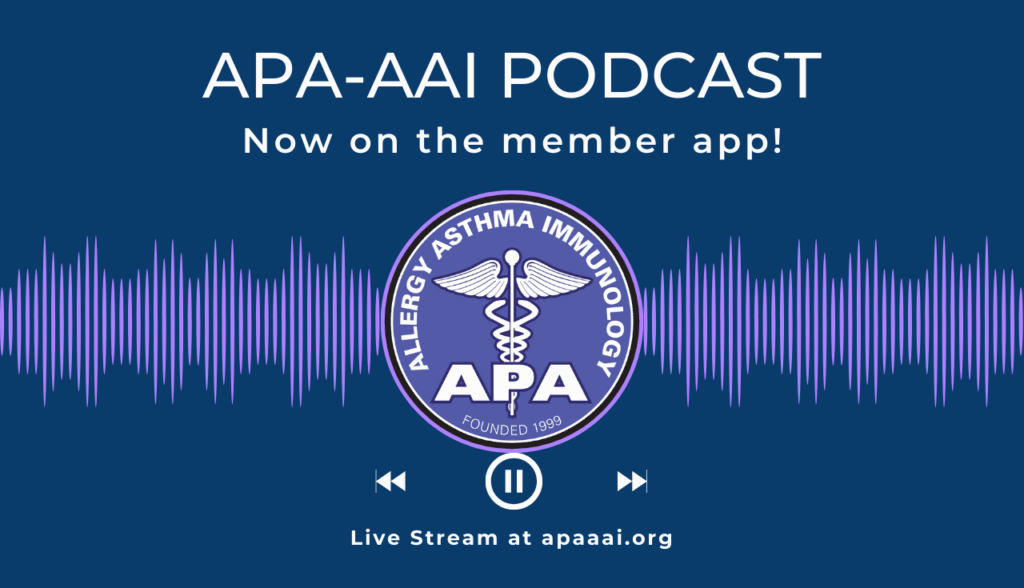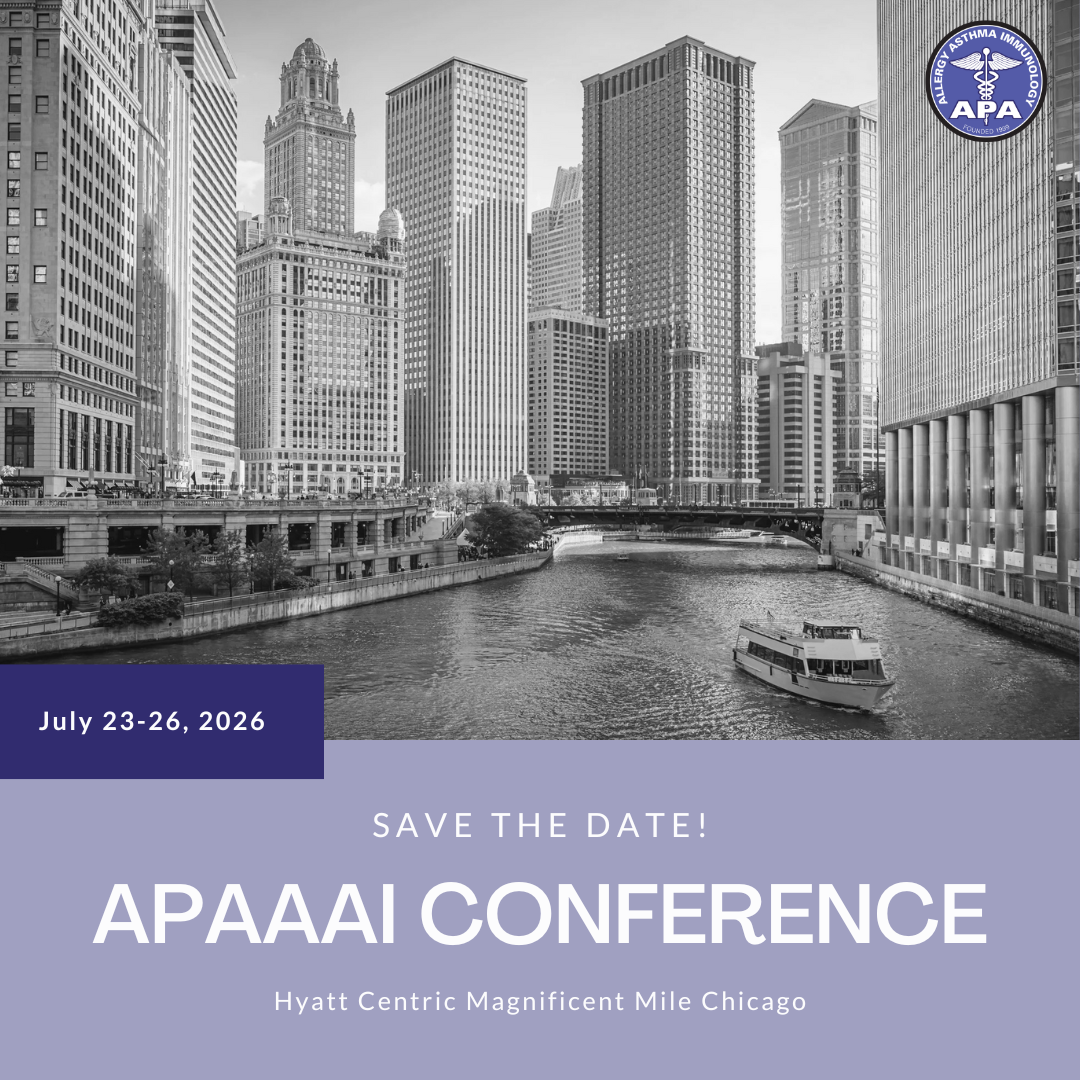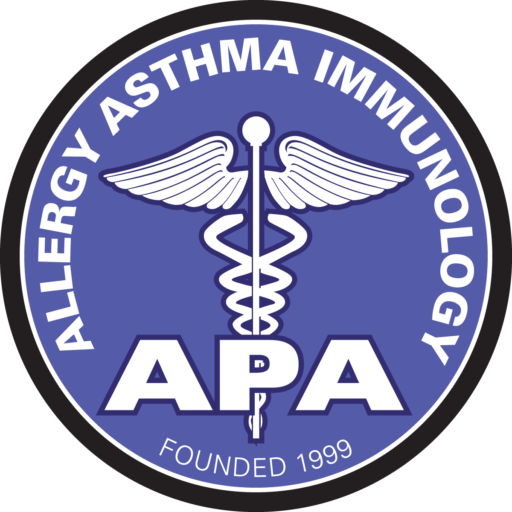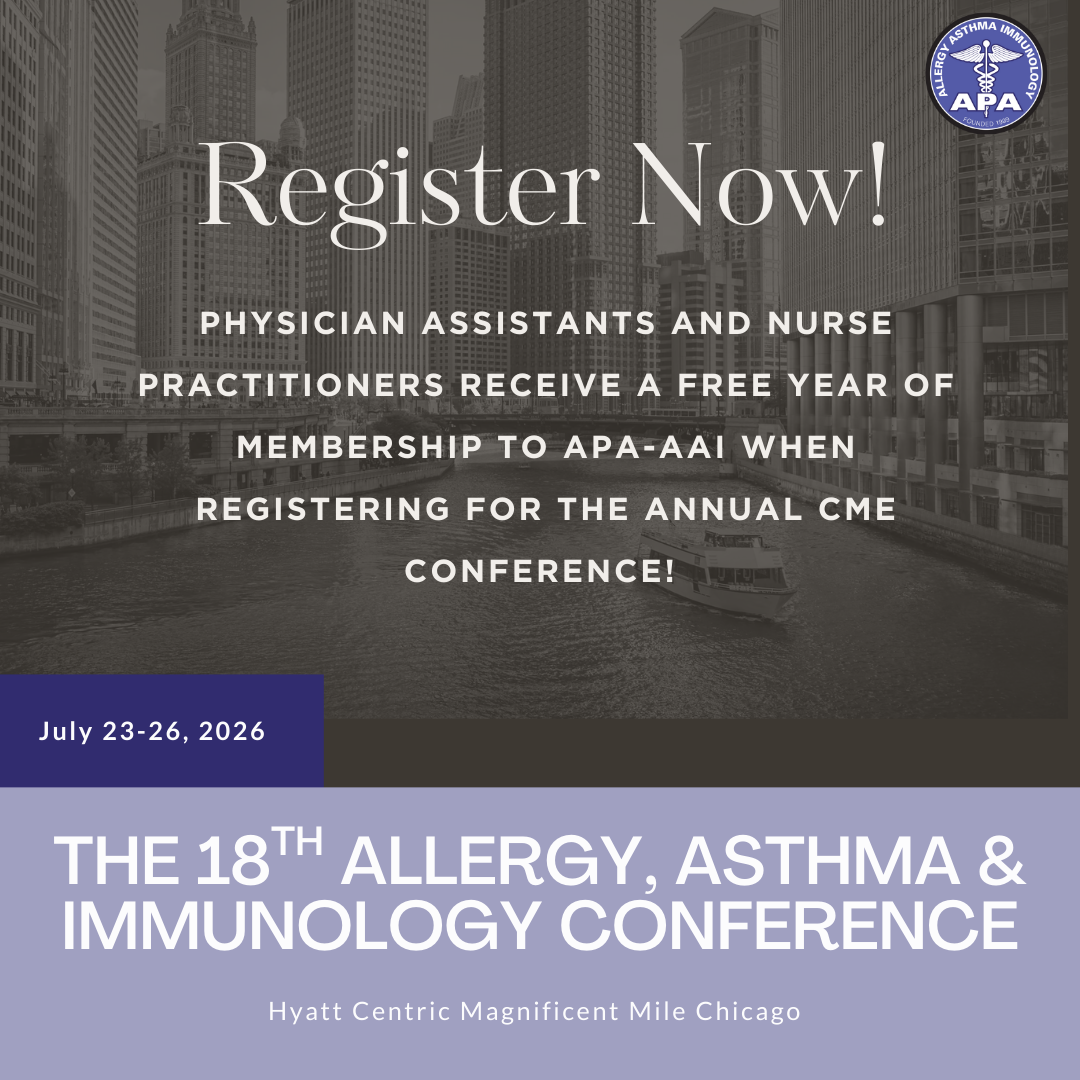Welcome to the Association of PAs in Allergy, Asthma & Immunology
We support the growth and development of PAs and NPs who have an active interest in the field of allergy, asthma & immunology.
Welcome to APA-AAI
Our association was formed to promote the growth and development of physician assistants who have an active interest in the field of allergy, asthma, and immunology. We provide the general membership with a forum for informal assembly regarding the issues that relate to physician assistants in allergy, asthma, and immunology. We facilitate mutual assistance and support of physician assistants, health professionals, and health services by organizing and disseminating health care information through forums, panels, and other similar programs concerning the delivery and quality of health care services. In addition, we develop and maintain a speakers bureau for the Academy and its members.
We are thrilled to announce the launch of our new podcast series!
This exclusive podcast offers a collection of lectures and educational content, with many episodes offering valuable CME credits.
To start listening and earning CME, members can log in and access the full library.
Not yet a member? Join for free today to unlock this and other great benefits!
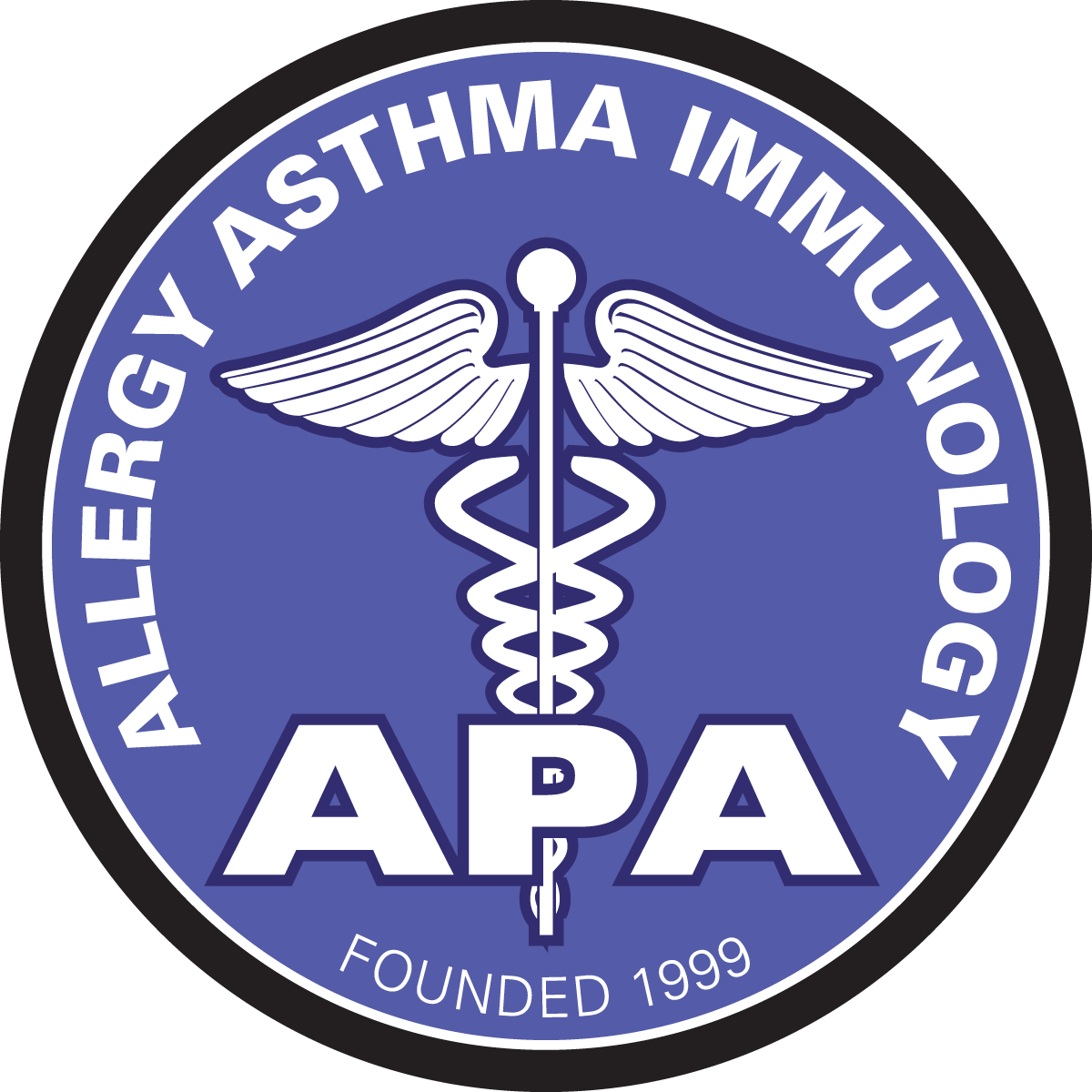
Member Only Salary Survey
PA & NP 2022 Salary Survey Results
This salary survey was taken live at the 2022 14th Allergy, Asthma & Immunology Conference. The attendees were all PAs & NPs working in the Allergy, Asthma & Immunology Industries. Results include geographic areas, salary based on work experience, incentive bonuses, CME compensation, profit sharing, paid vacation, sick days, on call pay, malpractice insurance, mileage reimbursement, medical tasks you perform, work days, and more.
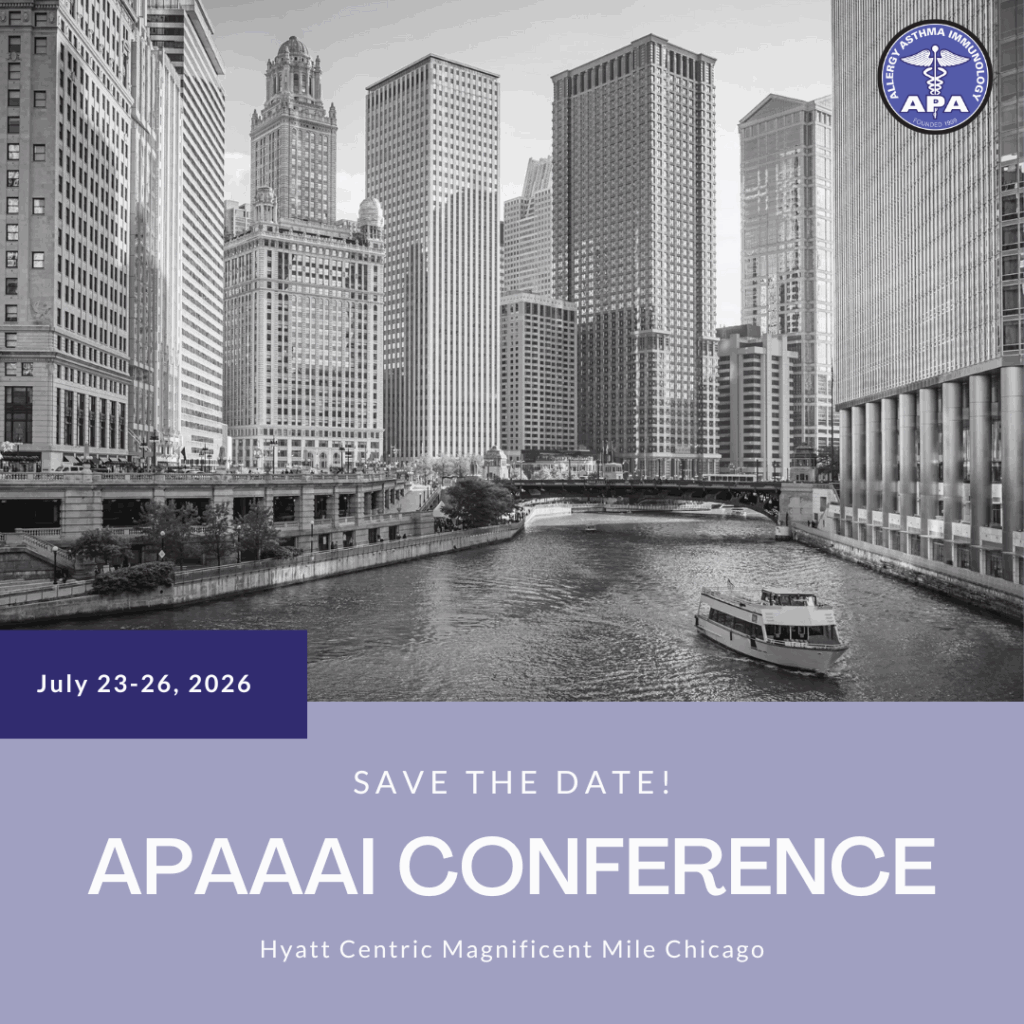
18th Annual Allergy, Asthma & Immunology CME Conference
July 23 – July 26, 2026
Hyatt Centric Magnificent Mile Chicago
Upcoming Events and Activities
See what’s happening with APA-AAI!
23
July 2026
18th Annual Allergy, Asthma & Immunology CME Conference
- Starts: 23 July 2026
- Ends: 26 July 2026
- Location: Hyatt Centric Magnificent Mile Chicago
Members in the News
Perspective
Bill Sanders, MS, PA-C
This is an interesting and much-needed writeup about sleep considerations for patients with allergy. I was surprised at the high rate of insufficient sleep that a CDC survey found for children (34%) and adolescents (75%). That is significant and underappreciated, I believe. Although it was a small sample size (3.3% response rate), it sheds light on a very important issue.
It wasn’t so surprising to me that many clinicians fail to ask about adequate sleep among their allergy patients. Sleep is probably not a major consideration when practitioners are focusing on diagnoses and treatment. With insufficient sleep being such a problem in the pediatric population as the CDC reports, it makes me wonder how aware pediatricians are of this.
Because we’re accustomed to ask about nighttime cough and wheezing with asthmatics, it is not surprising that respondents inquired most often about sleep in patients with asthma (74% all the time) but less often in those with chronic urticaria/dermatitis and food allergies. The discomfort of those with chronic skin allergies may not be fully appreciated by some specialists (perhaps those with less experience), but these patients often have significant nighttime pruritis that interrupts their sleep.
The difference between those who have been in practice more than 10 years and those in practice less time to ask about obstructive sleep apnea was interesting, likely reflecting the experience one gets in a practice rather than what’s learned in school, residency or fellowship.
I think this report underscores the need for more studies in the awareness, effects and treatment of sleep deprivation. Considering the negative effects of poor sleep, including the reduction of mental clarity and coping mechanisms that can lead to increased stress and potential mental illness, sleep is a necessary topic about which clinicians should inquire.
In my practice, I have the sleep question in the review of systems on my template, so I always ask about sleep with my new patients. I don’t ask about sleep often with my established patients, but after seeing the prevalence in the numbers by the CDC, I will try to ask about it more often.
Bill Sanders, MS, PA-C
Owner and Physician’s Assistant, Allergy & Urgent Care
President, Association of PAs in Allergy, Asthma & Immunology
Disclosures: Sanders reports no relevant financial disclosures.
Join Us!
Join the The Association of PAs in Allergy, Asthma, and Immunology (APA-AAI) or renew your membership today to better serve your patients, provide outreach to the medically underserved, strengthen your profession, network with colleagues and celebrate your accomplishments. Take advantage of all APAAAI has to offer.
